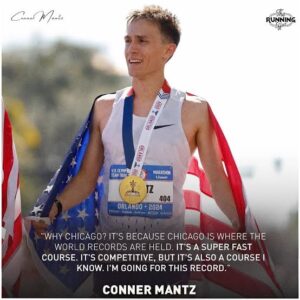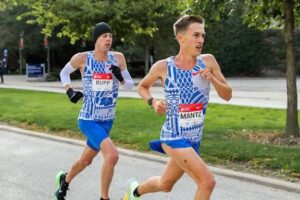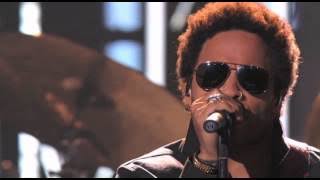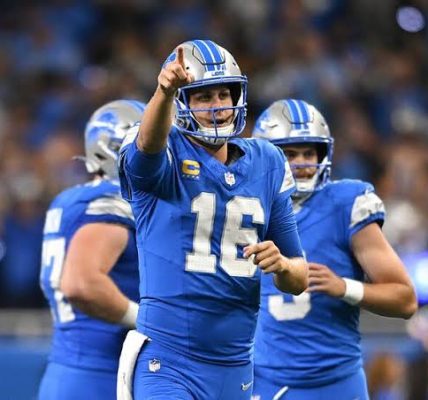Skip to content

On Sunday in Chicago, Conner Mantz etched his name in the history books by running 2:04:43 to break the long‑standing American men’s marathon record. (NBC Chicago)
A Record Long Overdue
Mantz’s performance shattered the 23‑year old U.S. record previously held by Khalid Khannouchi, who ran 2:05:38 in London in 2002. (EssentiallySports)
While Ryan Hall once ran 2:04:58 in Boston (2011), that time is not record‑eligible because the Boston course is point‑to‑point with net elevation drop. (NBC Sports)

Mantz’s mark not only redefines the ceiling for American marathoners — it resets expectations about what U.S. distance running can accomplish on the world stage.
The Race: Chicago 2025
Mantz entered the Chicago Marathon having posted a strong 2:05:08 performance in Boston earlier this year — itself among the fastest by an American — giving him confidence going in. (flotrack.org)
In Chicago, the conditions were favorable: flat, fast, and record‑eligible. (NBC Sports)
Mantz ran a very well paced race, maintaining composure and speed deep into the final miles. (worldmarathoner.com)
He ultimately placed fourth overall, finishing two minutes and twenty seconds behind winner Jacob Kiplimo of Uganda (2:02:23). (Reuters)

In the latter stages, Mantz battled with Kenya’s Alex Masai for a podium spot, but ultimately Masai prevailed by six seconds. (EssentiallySports)
Shortly after the finish, Khannouchi — wearing the mantle of the previous record holder — greeted Mantz and famously asked, “What took you so long?” (NBC Sports)
Why This Moment Matters
This isn’t just a personal triumph for Mantz, but a turning point for American distance running:
-
It shows that an American can compete with the world’s best over 26.2 miles, not just domestically but on a level field.
-
It lowers the psychological barrier.
Once a national record falls, other athletes see the possibility more clearly.

-
It underscores the importance of pacing, discipline, and marathon‑specific acumen — not just raw talent.
Mantz’s progression has been deliberate.
After a successful collegiate and early professional career, he gradually moved up the distances, improving in consistency, strength, and racing intelligence. (Wikipedia)
Earlier in 2025 he also broke the U.S. half marathon record in Houston, running 59:17 and eclipsing Ryan Hall’s long‑standing mark. (worldmarathoner.com)
Mantz’s earlier 2:05:08 in Boston this year, though not record‑eligible, served as proof of concept — a demonstration that he could run at world‑class pace with poise over the full distance. (flotrack.org)
Looking Ahead
With the American record now reset, Mantz may turn his sights to further milestones: perhaps the North American record, breaking into the sub‑2:04 range, or competing for major marathon victories. (Canadian Running Magazine)
Given his age (28), his rapid improvement, and the momentum behind him, many will expect him to challenge for podiums in Berlin, London, or New York in the coming years.
For now, though, Mantz deserves to bask in this moment: a defining achievement, a new benchmark, and a signal that American marathon running has reached a new altitude.








